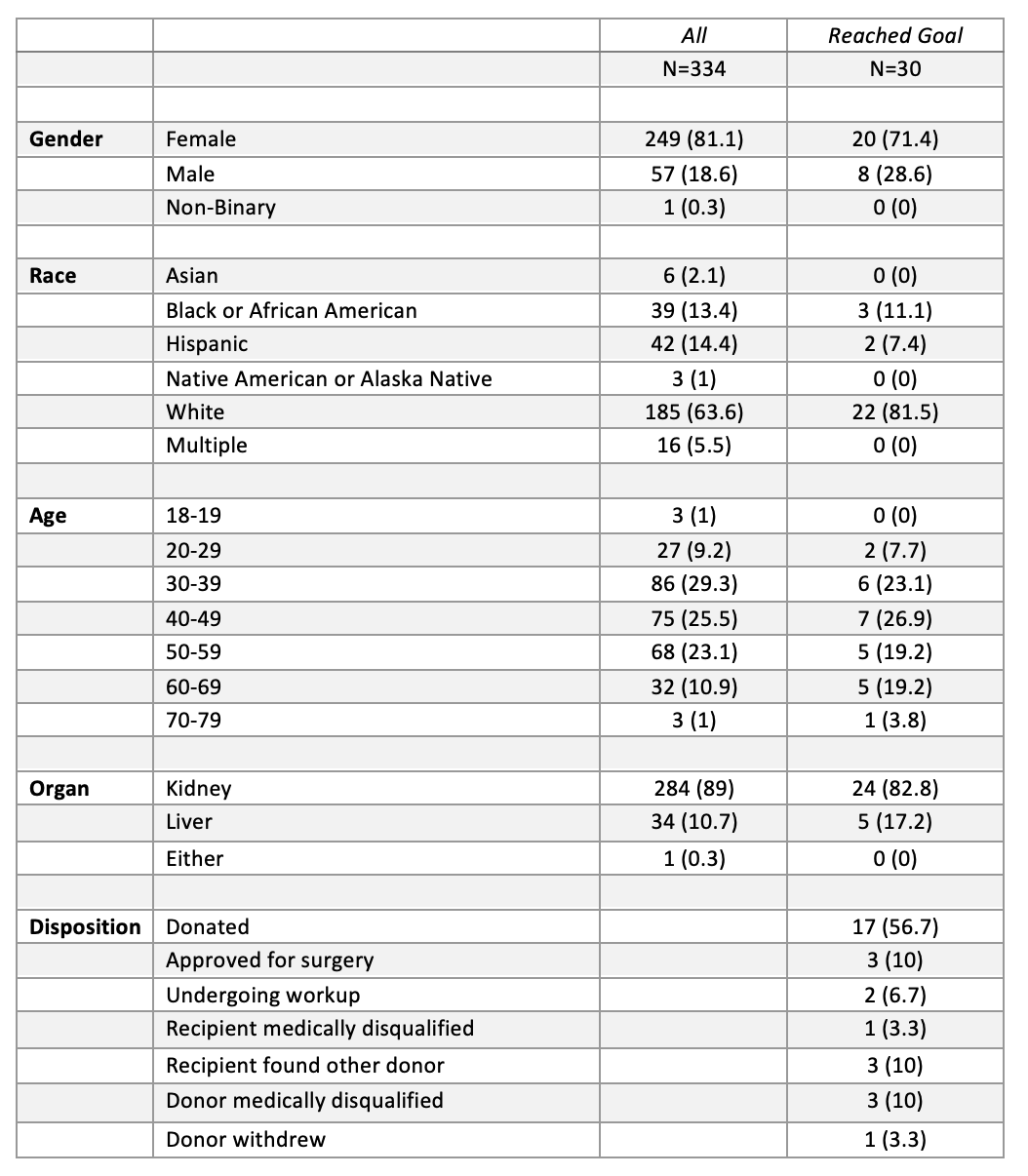Project donor: A national intervention to improve the health of living organ donors
Ali Abbasi1, Claire Sukumar2, Ruby Rorty2, Babak Orandi3, Nancy Ascher4, Peter G. Stock4.
1Department of Surgery, University of California, San Francisco, San Francisco, CA, United States; 2Center for RISC, University of Chicago, Chicago, IL, United States; 3Department of Surgery, NYU Grossman School of Medicine, New York, NY, United States; 4Division of Transplant Surgery, Department of Surgery, University of California, San Francisco, San Francisco, CA, United States
Introduction: Living donation is an important strategy to address the rising gap between wait list additions and available deceased donor organs and is associated with improved long-term graft survival. However, many potential donors are unable to donate due to modifiable risk factors that increase the risk of donation such as smoking and obesity. Many of these candidates could achieve donation with lifestyle changes, but few resources are available to support these potential donors. The purpose of Project Donor (PD) is to help potential donors improve their health through weight loss and smoking cessation interventions prior to donation.
Methods: Liver or kidney donor candidates are referred to Project Donor by transplant centers, partner organizations like the National Kidney Registry, or self-referral. Participants meet with a Project Donor case manager who provides support through the donation process. Case managers refer participants to resources based on their goals at no cost including weight loss programs (Noom and WeightWatchers), nutritionists (OnPoint Nutrition), nicotine replacement therapy, teletherapy (BetterHelp), and an online support community. Participants are followed by case managers and are referred back to the transplant center to complete the donor evaluation once their goals are met. To reduce the risk of regaining weight or restarting smoking, participants must continue the program for one year after donation and may continue using resources as needed thereafter. All meetings are conducted virtually or over the phone.
Results: Between 5/1/2022 and 2/20/2024, 334 participants from 38 US states and 65 transplant centers have been onboarded, including 34 liver donors (Table 1). The majority of participants are female (81%). To date, 30 (9%) participants have reached their goal (2 smoking, 28 weight loss). Weight loss was an average of 16lbs over 142 days. Donation was achieved by 17 (5.1%) participants (14 kidney, 3 liver). Goal weight was achieved by 15/128 (12%) participants utilizing OnPoint Nutrition, 15/141 (11%) using Noom, 0/52 (0%) using WeightWatchers. Amongst participants who reached their goal but have not donated, 3 are approved for surgery, 2 are undergoing workup, 4 have not donated for reasons related to the recipient, and 4 have not donated for reasons related to the donor.

Conclusion: Project Donor is a national program to improve the health of potential organ donors through weight loss and smoking cessation. Since the first donation in February 2023, Project Donor has helped 30 participants achieve their goals ans seventeen participants have donated a kidney or liver. Project Donor reaches a diverse group of donors across the US by relying on virtual case management and referrals to external service providers. Project Donor demonstrates how increased support for living donors can facilitate more life-saving transplants and generate better health outcomes for donors and recipients alike.
[1] organ donation
[2] living donation
[3] obesity
[4] weight loss
